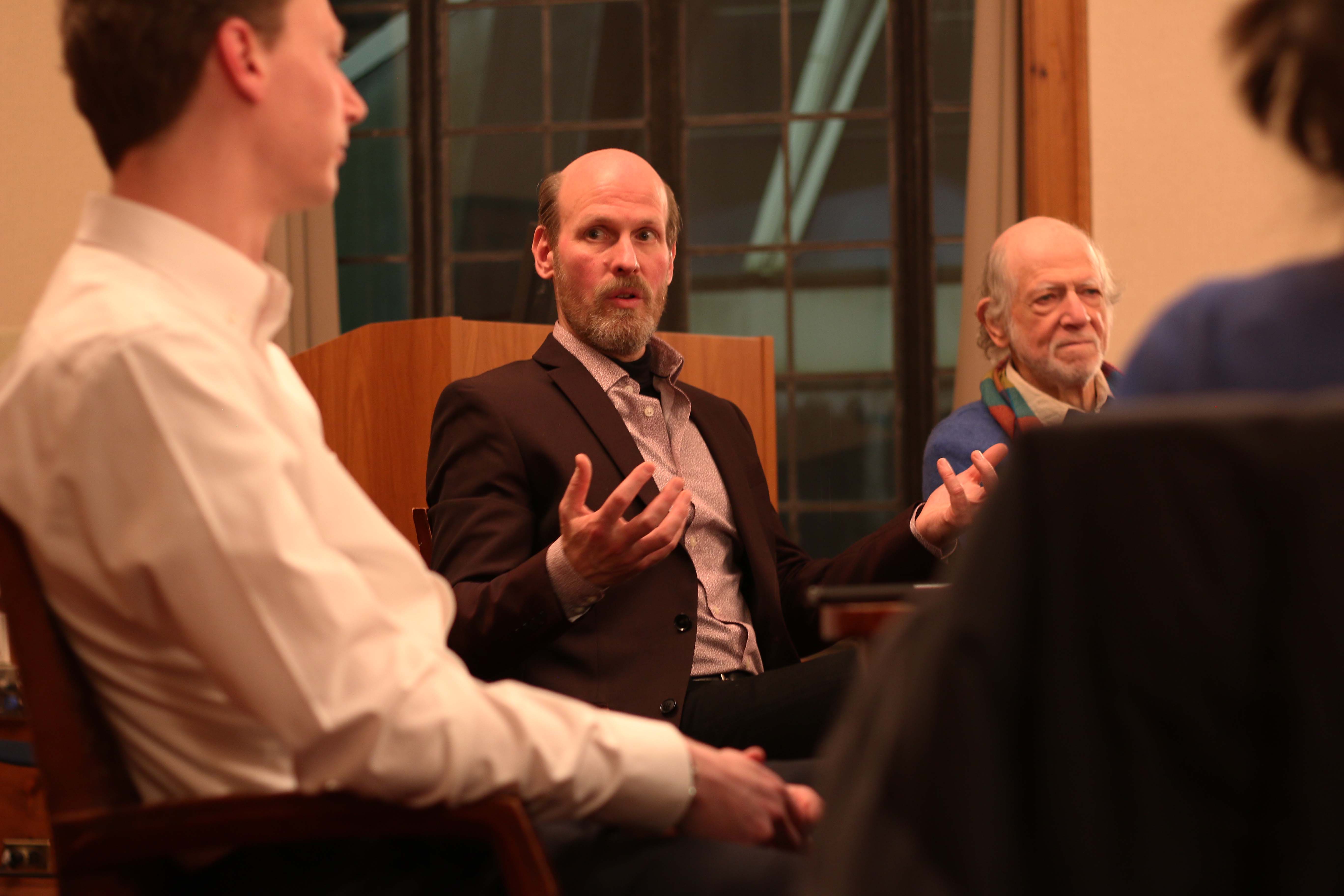
The Yale Psychedelic Science Group gathered for the first time Tuesday evening at the Yale School of Medicine, marking the inaugural session of a seminar series on the therapeutic use of psychedelic substances in academic research and clinical psychiatry.
The group of six organizers, who have been meeting informally to discuss developments in the field of psychedelic science since last year, decided to form a special interest group within the school’s department of psychiatry due to increasing interest in the field. Members, including psychiatry faculty, residents and fellows, will meet on the second Tuesday of each month to discuss use of psychedelic substances as alternative medicines. Members of the discussion group said they are looking forward to discussing recent research findings on psychedelic drugs.
“In studying psychedelics, you do need a multidisciplinary perspective, or an interdisciplinary perspective, given a lot of the historical and cultural ways that psychedelics have been used. I think it’s important to have some understanding of that when adapting them into the scientific Western medical model,” psychiatry resident Jordan Sloshower, a member of the group, said.
Peter Addy, an associate research scientist in anesthesiology, led Tuesday’s seminar, speaking on historical perspectives of psychedelic research in psychiatry and presenting an overview of recent seminal research in the field. Future discussions will examine evidence to guide clinical use. Funding from the department of psychiatry will allow group members to invite guest speakers.
The series was inspired in part by the large influx in new data as well as popular interest in the field, Sloshower said. Event organizers emphasized the importance of bringing a historically informed perspective to these discussions.
As supplements to traditional psychiatric treatments, psychedelic substances first showed strong potential in studies conducted from the 1950s to early ’60s. However, in the late ’60s and early ’70s, legislation, including the Controlled Substances Act, was passed that restricted research on psychedelic substances as treatment. The past decade has seen renewed interest in psychedelic research since proposals for psychedelic research has been approved, Addy said.
During his presentation, Addy spoke about various recent studies that had been conducted regarding the potential of psychedelic substances in psychiatric treatment. These studies included research conducted by the Johns Hopkins School of Medicine on the potential of the hallucinogen psilocybin, the active ingredient in “magic mushrooms,” to help patients quit smoking in the context of cognitive behavioral therapy treatment. Another study currently being conducted by University of New Mexico will investigate the effects of psilocybin-assisted psychotherapy in treatment of alcoholism.
Addy added that YPSG hopes to invite authors of similar studies to share their experiences in psychiatry and research in psychedelic substances.
After the presentation, Addy invited attendees to ask questions as well as share their own backgrounds and interest in the field. Participants discussed whether psychedelic substances were causally related or merely correlated to cessation of substance abuse. They further considered whether new terminology should be coined to describe elements of studies involving psychedelic substances, since commonly used words such as “mystical” or even “psychedelic” can have strong nonscientific connotations.
The group, originally named the Yale Psychiatry and Psychedelics Group, has been renamed to reflect the inclusive, interdisciplinary nature of the discussion, though the group’s focus remains on the clinical applications of psychedelic substances to psychiatric treatment, Addy said.
Correction: A previous version of this article stated that the YPSG consists of over 30 people. It has been clarified to state that there were six organizers who had formed the original group. In addition, the article incorrectly stated that the group would be meeting on the third Tuesday of each month, but they will actually be meeting on the second Tuesday.







